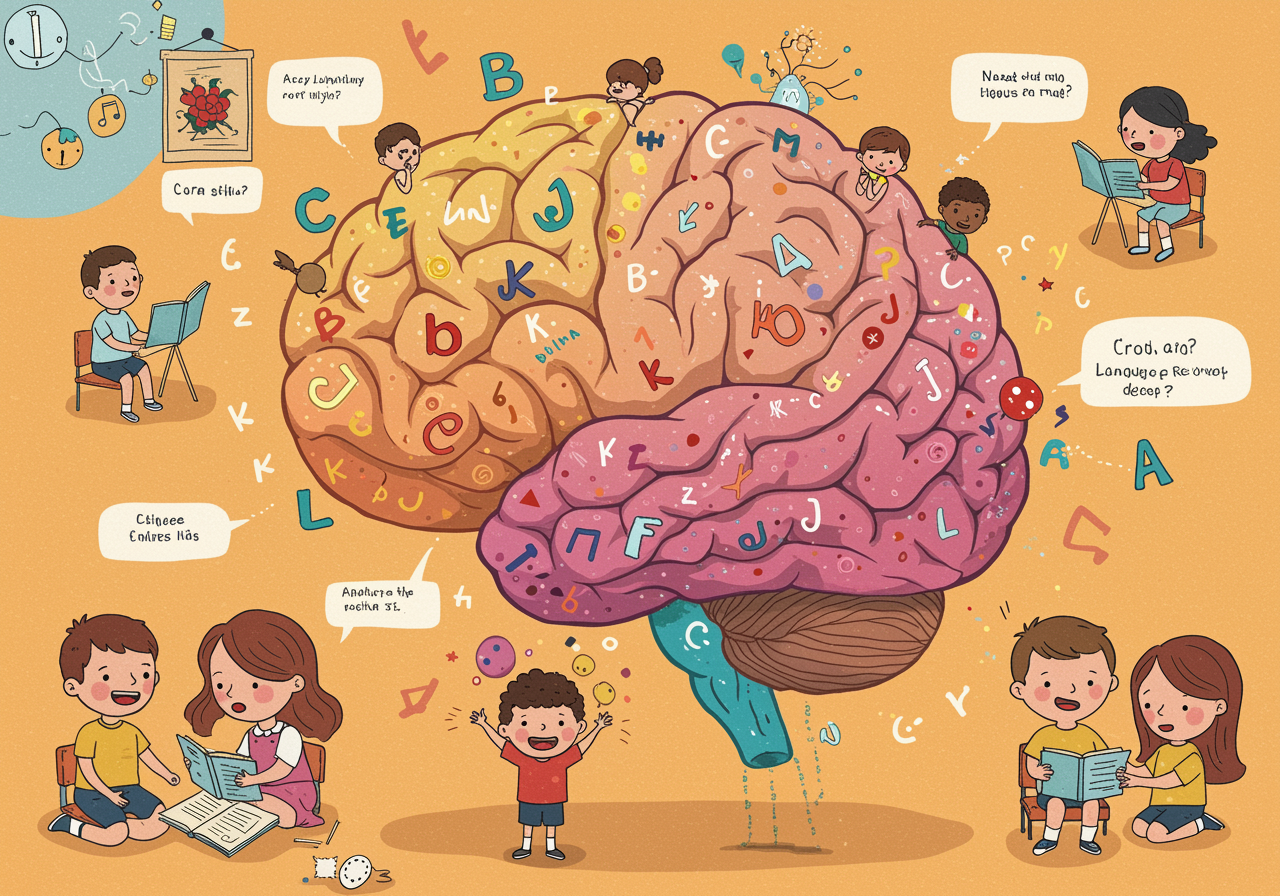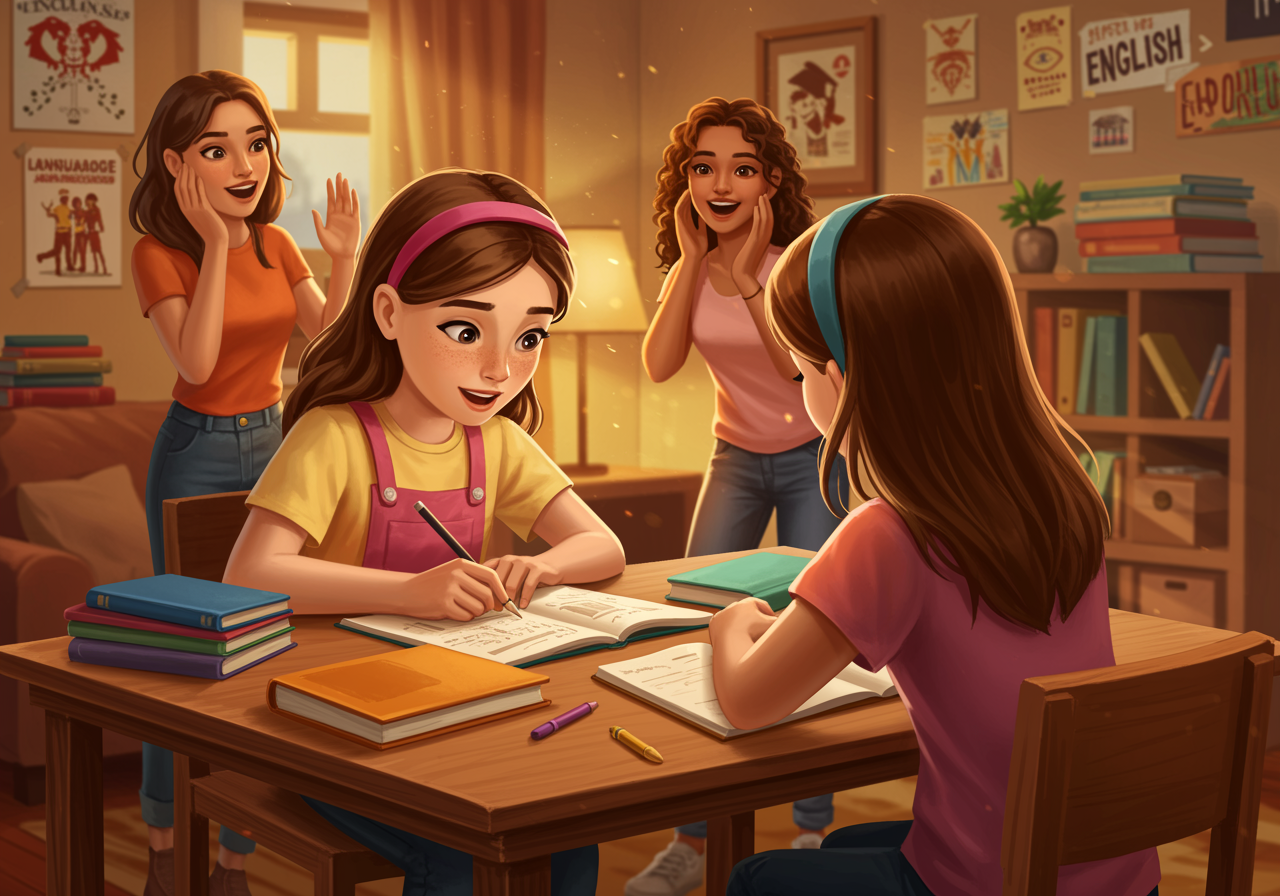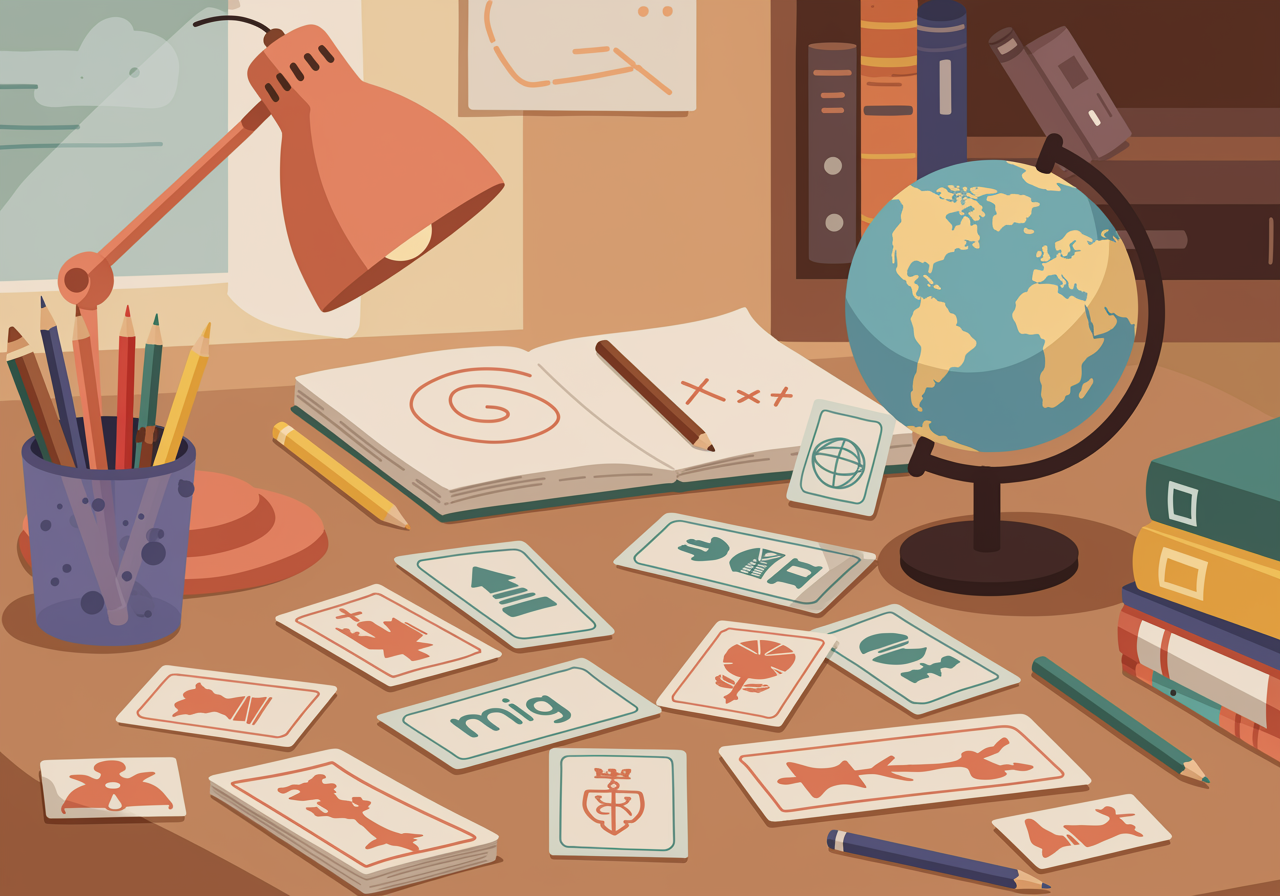Your Brain on Words: How Language Rewires Your Mind!
Discover how every word you learn literally changes your brain’s wiring
Ever wonder why learning new languages feels like unlocking superpowers? Dive into the amazing science of how words reshape your brain and emotions!
Overview
Think of your brain like the ultimate smartphone that gets cooler with every app you download. But instead of apps, it's languages! Every new word, phrase, or language you learn literally rewires your brain, creating new connections and changing how you think and feel. Scientists have discovered that kids who grow up speaking multiple languages actually have different brain structures than those who speak just one. It's like having a supercharged processor that can switch between different operating systems. This isn't just about being smart – it's about how language shapes your emotions, memories, and even your personality!

Understand in 30 Seconds
Get up to speed quickly
- Brain Plasticity is Real: Your brain physically changes every time you learn new words. It's like adding new highways that help thoughts travel faster and in different directions.
- Critical Learning Windows: There are special times in childhood when your brain is like a super-absorbent sponge for language. Missing these windows doesn't mean you can't learn, but it's like trying to download on slow wifi.
- Emotions Have Language: Different languages actually help you feel and express emotions differently. Some languages have words for feelings that don't exist in others!
- Bilingual Brain Boost: Kids who speak multiple languages develop better problem-solving skills and can switch between tasks more easily. It's like having mental superpowers!
Real Life Scenario
Situations you can relate to
Imagine your friend Maya, who speaks English at home but learned Spanish in school. When she gets frustrated, she sometimes thinks in Spanish because certain Spanish words capture her feelings better than English ones. Scientists found that Maya's brain literally looks different on scans compared to kids who only speak English. She has thicker areas in parts that control attention and switching between tasks. It's like her brain developed extra muscle! But here's the coolest part: when Maya reads a sad story in Spanish versus English, different parts of her brain light up with emotions. Have you ever noticed that songs in different languages make you feel different ways, even if you don't understand all the words?

Role Play
Spark a conversation with “what if” scenarios
What if you could only communicate using emojis for a whole day?
- Role play: Try having a conversation using only gestures, drawings, or emojis. Notice how your brain works differently when you can't use your usual words. How does it feel emotionally?
What if you had to explain your favorite hobby to someone who speaks a different language?
- Role play: Act out teaching something you love without using words they'd understand. Use props, gestures, and simple drawings. See how your brain finds creative ways to communicate!
What if you discovered a word in another language that perfectly describes a feeling you've never been able to name?
- Role play: Research unique words from other languages (like 'saudade' from Portuguese or 'hygge' from Danish). Practice using them and notice if they help you identify new emotions.
FAQs
Frequently asked questions people want to know
Is it true that kids learn languages faster than adults?
Yes! Kids' brains are more flexible, like moldable clay. Adults can still learn languages, but it takes more effort because their brain pathways are more set, like hardened clay that needs more work to reshape.
Can learning multiple languages make you smarter?
It doesn't make you smarter, but it does make your brain more flexible and better at multitasking. It's like cross-training for your mind – you develop mental muscles you didn't know you had!
Why do some words feel more emotional in one language than another?
Your brain connects words with memories and emotions from when you learned them. Your first language is often tied to family and deep feelings, while other languages might feel more logical or distant.
Examples in the Wild
See how this works day to day
- Researchers at MIT found that children who learn a second language before age 10 develop brain structures nearly identical to native speakers, while those who learn after 18 show different neural patterns. (MIT Department of Brain and Cognitive Sciences, 2018)
- A study in Barcelona showed that bilingual children performed better on tasks requiring attention and cognitive flexibility compared to monolingual peers, even when controlling for socioeconomic factors. (University of Barcelona Cognition and Brain Plasticity Group, 2020)
- Brain imaging studies reveal that people who learned their second language as children show equal activation in both hemispheres when processing either language, while late learners show different patterns. (Stanford University School of Medicine, 2019)
- Research on Korean adoptees raised in France found that despite no conscious memory of Korean, their brains still showed faster neural responses to Korean sounds compared to French natives. (Hanyang University and University of Paris, 2021)
In Summary
What you should know before you start
- Your brain physically changes and grows new connections every time you learn new words or languages
- Childhood is a special time when your brain is extra good at absorbing languages, but learning never stops
- Different languages can help you feel and express emotions in unique ways that shape your personality
- Being bilingual or multilingual gives your brain extra flexibility and problem-solving superpowers
Pro-tip for Parents
You got this!
If your child feels frustrated learning a new language, remind them that struggle means their brain is literally building new pathways – like construction work that's noisy but creating something amazing. Focus on celebrating small wins and connecting language learning to things they already love, like music, games, or stories. The emotional connection is what makes language stick, so keep it fun and pressure-free!

Keep an Eye Out For
Find these examples in everyday life
- News stories about AI language models and how they compare to human language learning
- Research updates about critical periods for language development and what they mean for education
- Stories about endangered languages and communities working to preserve them for future generations
Explore Beyond
Look up these related research topics
- How music and language development are connected in the brain
- The science behind why some people have accents and others don't
- How reading changes your brain differently than listening or speaking